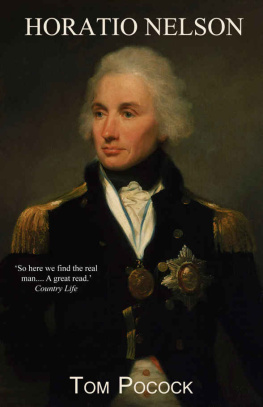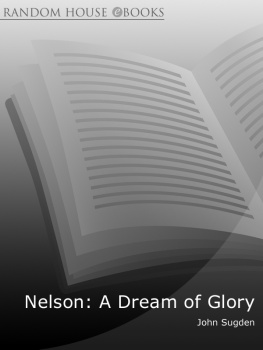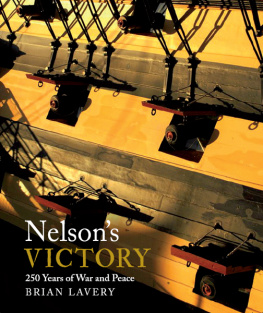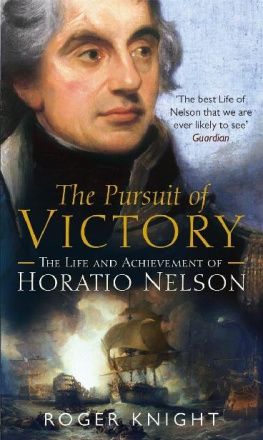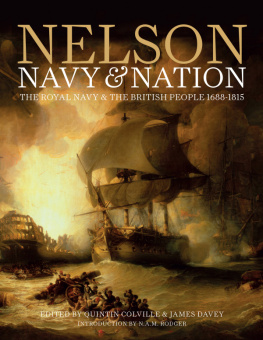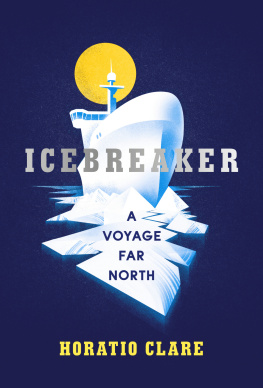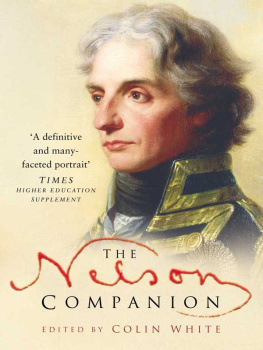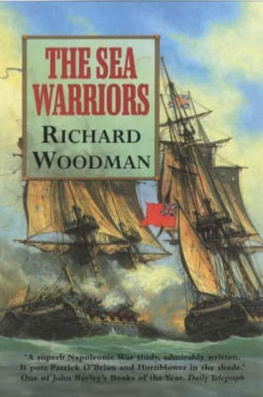Pocock - Horatio Nelson
Here you can read online Pocock - Horatio Nelson full text of the book (entire story) in english for free. Download pdf and epub, get meaning, cover and reviews about this ebook. year: 2013, publisher: Thistle Publishing, genre: Adventure. Description of the work, (preface) as well as reviews are available. Best literature library LitArk.com created for fans of good reading and offers a wide selection of genres:
Romance novel
Science fiction
Adventure
Detective
Science
History
Home and family
Prose
Art
Politics
Computer
Non-fiction
Religion
Business
Children
Humor
Choose a favorite category and find really read worthwhile books. Enjoy immersion in the world of imagination, feel the emotions of the characters or learn something new for yourself, make an fascinating discovery.
Horatio Nelson: summary, description and annotation
We offer to read an annotation, description, summary or preface (depends on what the author of the book "Horatio Nelson" wrote himself). If you haven't found the necessary information about the book — write in the comments, we will try to find it.
This biography of Horatio Nelson juxtaposes details of his daily life, loves, friendships and opinions with the great events which make him one of the most memorable figures in British history. This is the story of the man who saved Britain from invasion and gave it maritime supremacy. The book was runner-up for the Whitbread Biography Award.
Horatio Nelson — read online for free the complete book (whole text) full work
Below is the text of the book, divided by pages. System saving the place of the last page read, allows you to conveniently read the book "Horatio Nelson" online for free, without having to search again every time where you left off. Put a bookmark, and you can go to the page where you finished reading at any time.
Font size:
Interval:
Bookmark:
Horatio Nelson
Tom Pocock
Copyright 2013, Tom Pocock
Dedicated to
JOHN AND LILY McCARTHY
to whom students of Nelson owe so much.
NOTE ON STYLE
Nelson and his contemporaries wrote clear and robust English prose but their spelling and punctuation could be haphazard. So, while such defects have been remedied for the sake of clarity, their words have not been changed.
CONTENTS





I have both day and night accompanied your Lordship, wrote Hercules Ross, a retired sugar-planter from Jamaica to his friend Lord Nelson in the summer of 1805, and imagination has often carried me aloft to look for the flying enemy.
Nelson was killed in action a few weeks later but, ever since then, those who can think of him as a friend, or, at least, as a familiar acquaintance, have followed him in imagination. He has not only been the national hero who secured a century of maritime supremacy for his country but also the focus of British identity and aspirations. Yet he has remained a human being in memory and tradition: vivid, generous and brave; sometimes vain; occasionally weak: somebody with whom everybody can, in some way, identify. As another of his friends, Lord Minto, said of his contradictions: He is in many points a great man; in others, a baby.
Valiant yet vulnerable, Nelson has fascinated for two centuries. He continues to be the subject of books, paintings, plays and, even now, commemorative knick-knacks. The anniversary of his death is still marked with memorial services and his final victory by celebratory dinners. Now as then, he is the butt of half-admiring jokes; bawdy, when his name is coupled with that of Emma Hamilton. He can seem a contemporary and it requires no great leap of the imagination to think of him being interviewed on television. There may also be a deeper reason for his abiding appeal: perhaps, as the saviour of his people, sacrificed for their sake, he is an echo of the Christian tradition.
I offer another biography of Nelson with confidence that it will not waste the time of those who already know his story well. Over the twenty years since I wrote the first of four books about him and his time, new material has come to light and I have found many hitherto unpublished letters which illuminate him with shafts of light from fresh angles. In that time, other students of Nelson have made similar discoveries, which have been published as papers or in historical journals but not, until now, in a full biography.
My own interest in him has its roots both in Norfolk and the Navy. Exactly a century after the death of his father Edmund Nelson, the rector of Burnham Thorpe, my maternal grandfather became rector of the adjoining parish of North Creake. I have spent much time thereabouts and stories told by my mother suggested that social life in the county had not changed greatly over that century. I have walked the paths that Nelson walked, seen the views he saw, visited most of the houses he had, and enjoyed much talk about him in the parlour of the inn at Burnham Thorpe, which he knew as The Plough and has, since his last visit, been re-named the Lord Nelson. My father, born of a family with naval connections, taught history at the Royal Naval College, Dartmouth, for a decade and he explained to me that Nelsons achievement was as much in the setting of standards as in winning battles.
My own encounters with my subject such as the laws of time and mortality will allow began in 1944 when, during the invasion of Normandy, my ship passed the battleship Nelson at Spithead to berth in Portsmouth harbour within pistol-shot of his former flagship, the Victory . She was still wearing the flag of a commander-in-chief and came under fire again that June as V1 flying-bombs, fired from France, flew overhead; their bearing right but their range wrong.
On the 150th anniversary of Nelsons death at Trafalgar, I was at sea in the aircraft carrier Triumph , named after one of his ships. We were on passage from the Baltic to the Nore and were out in the North Sea when a gale blew as the Trafalgar Night dinner was about to be served in the wardroom. The officers attended in their mess kit, the silver was fixed to the tables with wooden frames and a Royal Marines band of music played nautical airs that Nelson would have known as the ship lurched, creaked and groaned in the storm. My friend and colleague David Woodward, naval historian and former war correspondent, was also on board we were returning from the first post-war visit of the Home Fleet to Leningrad; he representing the BBC; myself, The Times and he had been invited to propose the toast to The Immortal Memory and to speak of Nelson. As he rose, bracing himself against the roll of the deck, he said that he had felt diffident, as a civilian, when asked to address naval officers on this subject. But, on reflection, he said, he had decided otherwise. It was appropriate for anybody to talk of Nelson because he belonged to us all.
Later, as a travelling journalist, I was able to visit almost all the places of significance in his life and I believe I am the only one of his biographers to have done so. This involved some strange journeys, notably through the jungle of Nicaragua and down the Rio San Juan to El Castillo de la Inmaculada Concepcin, which he had besieged in 1780 and where he nearly died. I twice visited the shores of Aboukir Bay and became involved in a British attempt to dive upon the wreckage of the French flagship lOrient in the hope of discovering evidence of the Battle of the Nile if not the looted treasure of the Knights of Malta, which may have been on board. This ended prematurely with a twist that would have amused the men of 1798. Our consortium had sought permission from the Egyptian Government to dive on the wreckage in their territorial waters but, while we awaited their reply, a French warship anchored on the site and sent down its own divers. The French had, apparently, offered the Egyptians any treasure they found; themselves only wanting to retrieve whatever relics might be found and, of course, la gloire . Such experiences as these have enabled me to describe places which remain much as Nelson himself would have seen them.
I am grateful to those with whom I have enjoyed stimulating conversation about Nelson and in the past these have included my father, Guy Pocock, David Woodward, Oliver Warner and Christopher Lloyd. My thanks are also due to those naval historians who dine together each year during the anniversary of the Trafalgar campaign. These include, particularly, Richard Hough, who urged me to write this book; Lt. Cdr. Peter Kemp, who kindly read and commented upon the typescript; Admiral Sir Horace Law, of the Nelson family; Roger Knight and Roger Morriss, both of the National Maritime Museum; Richard Walker, the authority on Nelsons portraits; Colin White of the Royal Naval Museum; and Lt. Cdr. Peter Whitlock, who commanded the Victory for two commissions.
To many others I am grateful for help with research and in finding illustrations. In the United Kingdom, these include Lt. Cdr. Charles Addis, who also commanded HMS Victory; Sir Nicholas Bonsor, Bt., MP, also of Nelsons family; Viscount Bridport; Mr. Ben Burgess, Mr. Ronald Fiske and Mr. Michael Nash of the Nelson Society; Viscount Coke and Mr. F. C. Jolly, the administrator of Holkham Hall, Norfolk; Mr. Leslie Cousins of Deal; Miss Audrey Earle and Col. Charles Earle; Mr. John Ehrman; Miss Bridget Everitt; Mrs. June Jeffreys of Newhouse, the Matchams former home; Mrs. Gillian Ford; Mr. Bryan Hall; Mrs. Suzanne Hunter; Mrs. Lily McCarthy; Mrs. Judy Mair; Mr. Douglas Matthews; Mr. John May; Major Malcolm Munthe, descended from Nelsons neighbours of Merton days, the Penningtons; Mr. M. A. K. Murray; Mr. R. O. Ramsay: Mr. Clive Richards; Miss Venetia Turner; Mr. Rupert Willoughby; and Mr. Leslie Winter, landlord of The Lord Nelson at Burnham Thorpe. In assessing Nelsons medical condition after the Battle of the Nile, Dr. Geoffrey Bolt, Dr. William Dorrell and Dr. Gordon Ostlere (Richard Gordon) were particularly helpful.
Next pageFont size:
Interval:
Bookmark:
Similar books «Horatio Nelson»
Look at similar books to Horatio Nelson. We have selected literature similar in name and meaning in the hope of providing readers with more options to find new, interesting, not yet read works.
Discussion, reviews of the book Horatio Nelson and just readers' own opinions. Leave your comments, write what you think about the work, its meaning or the main characters. Specify what exactly you liked and what you didn't like, and why you think so.

